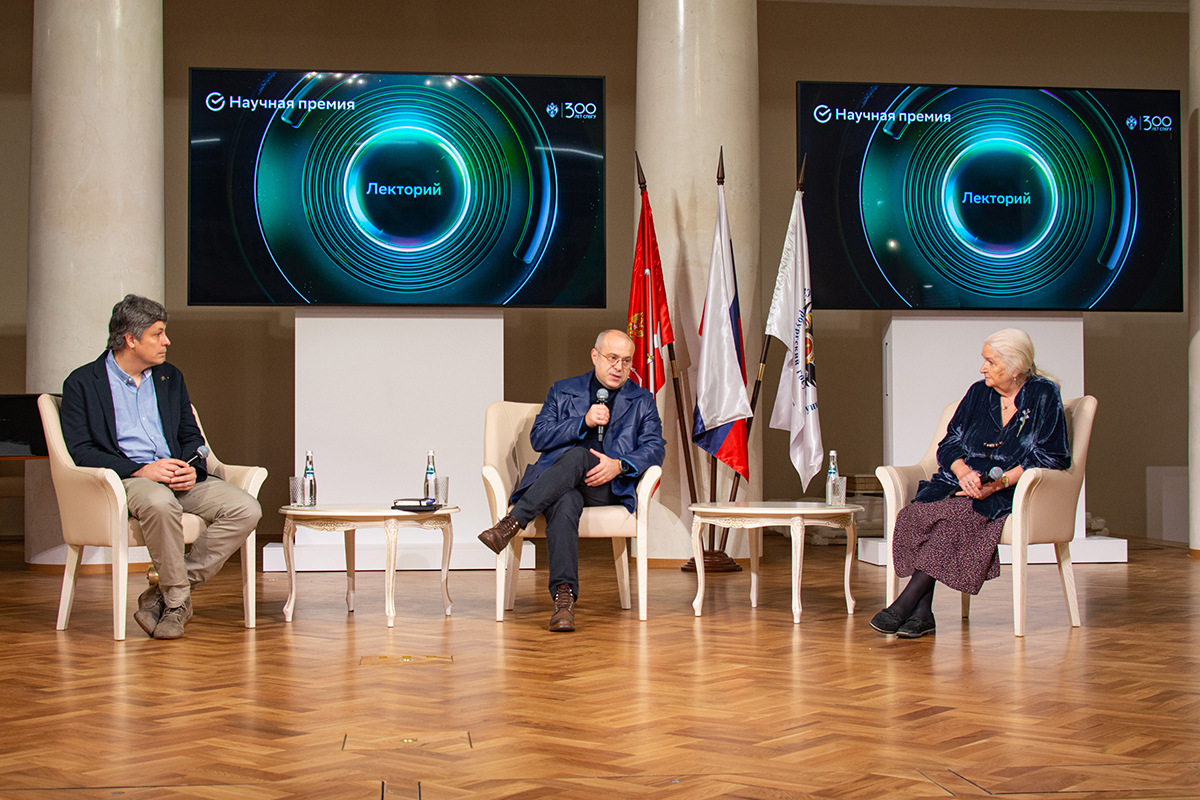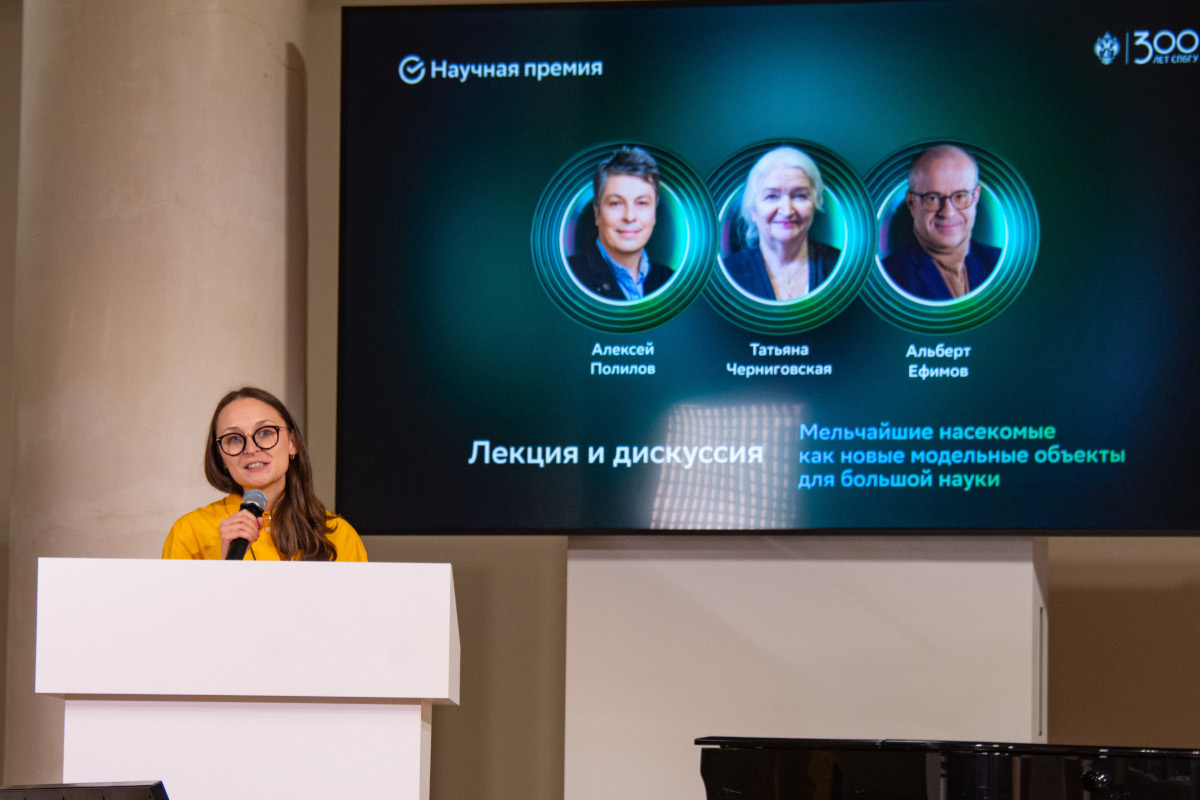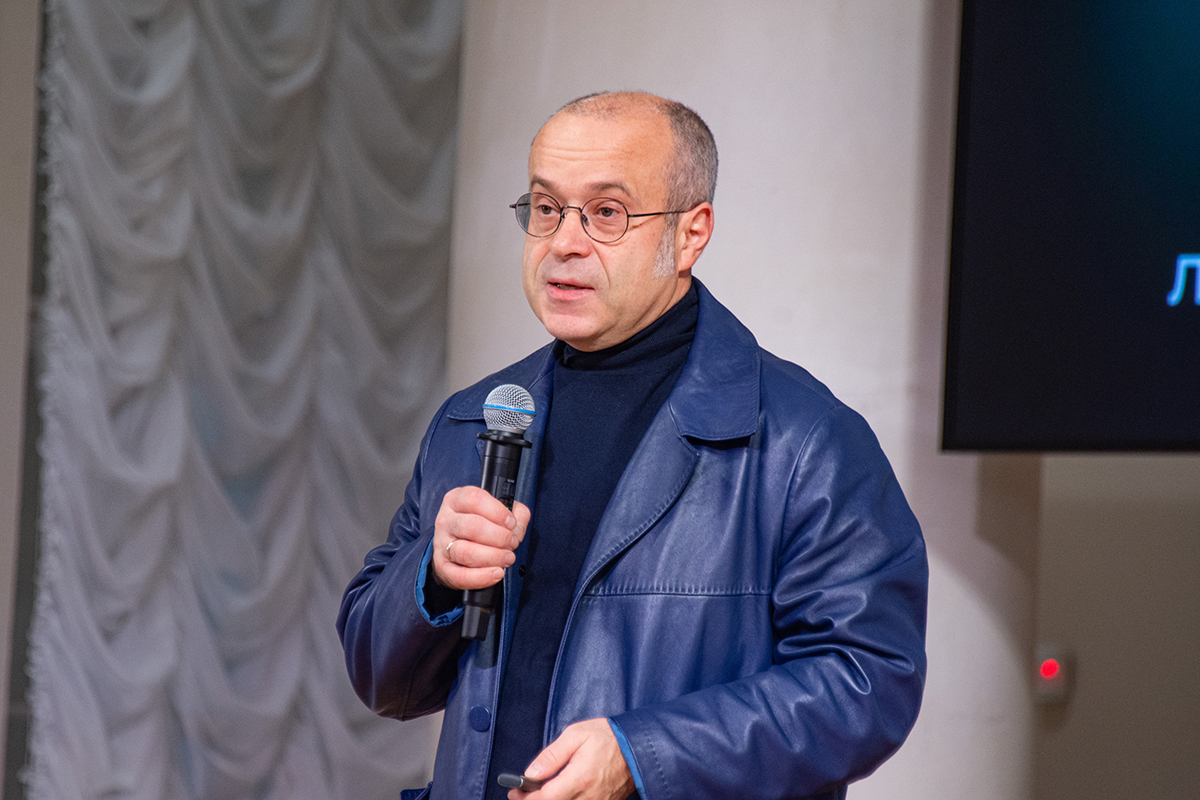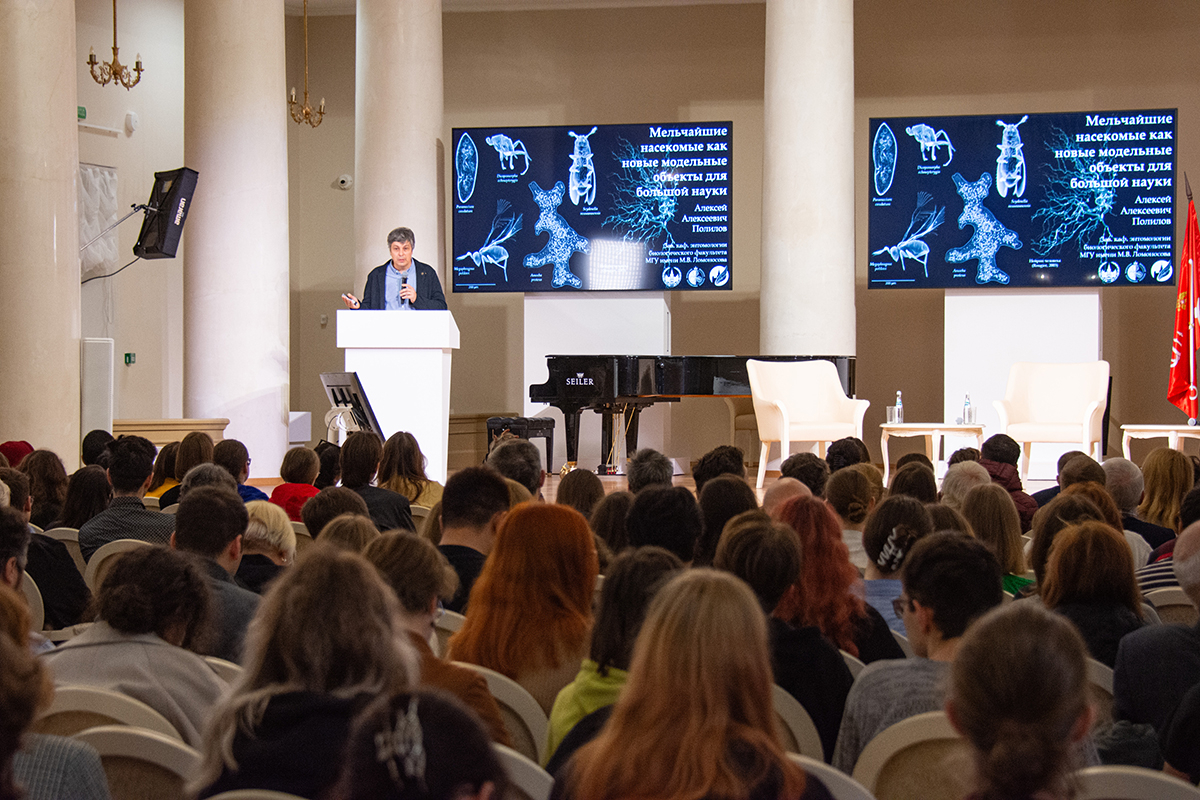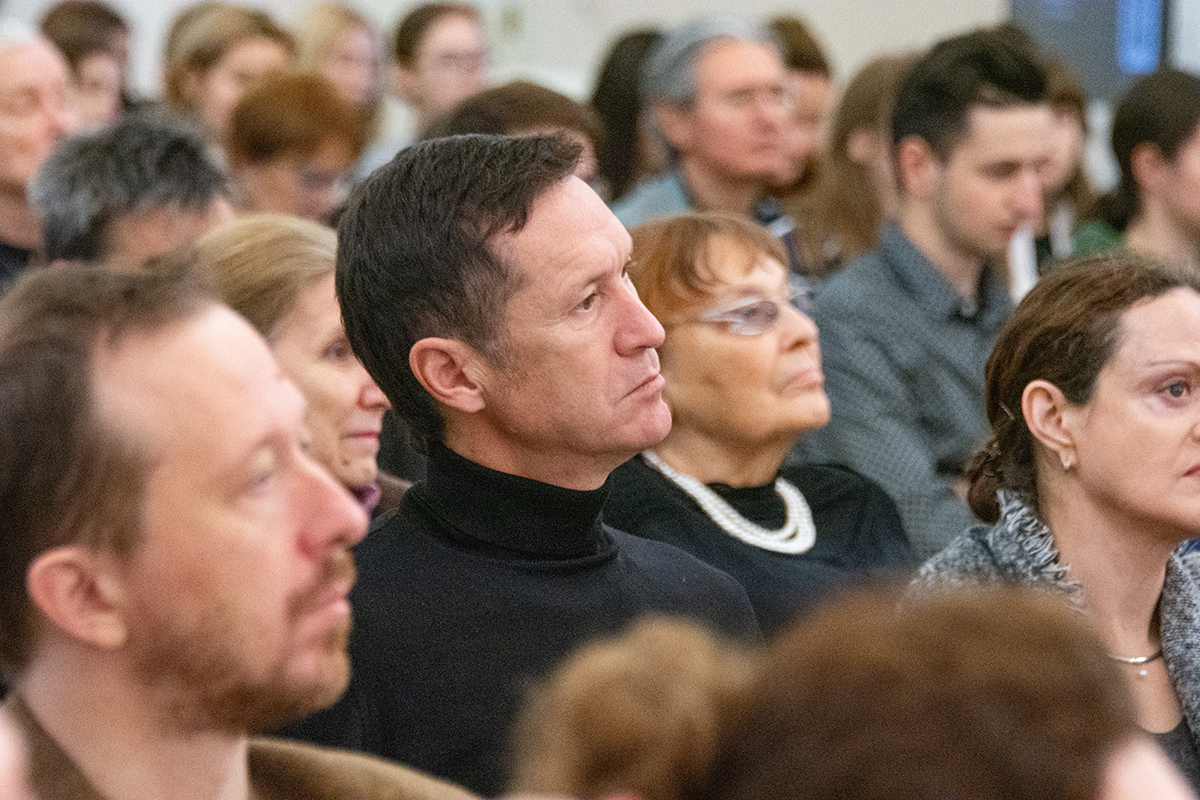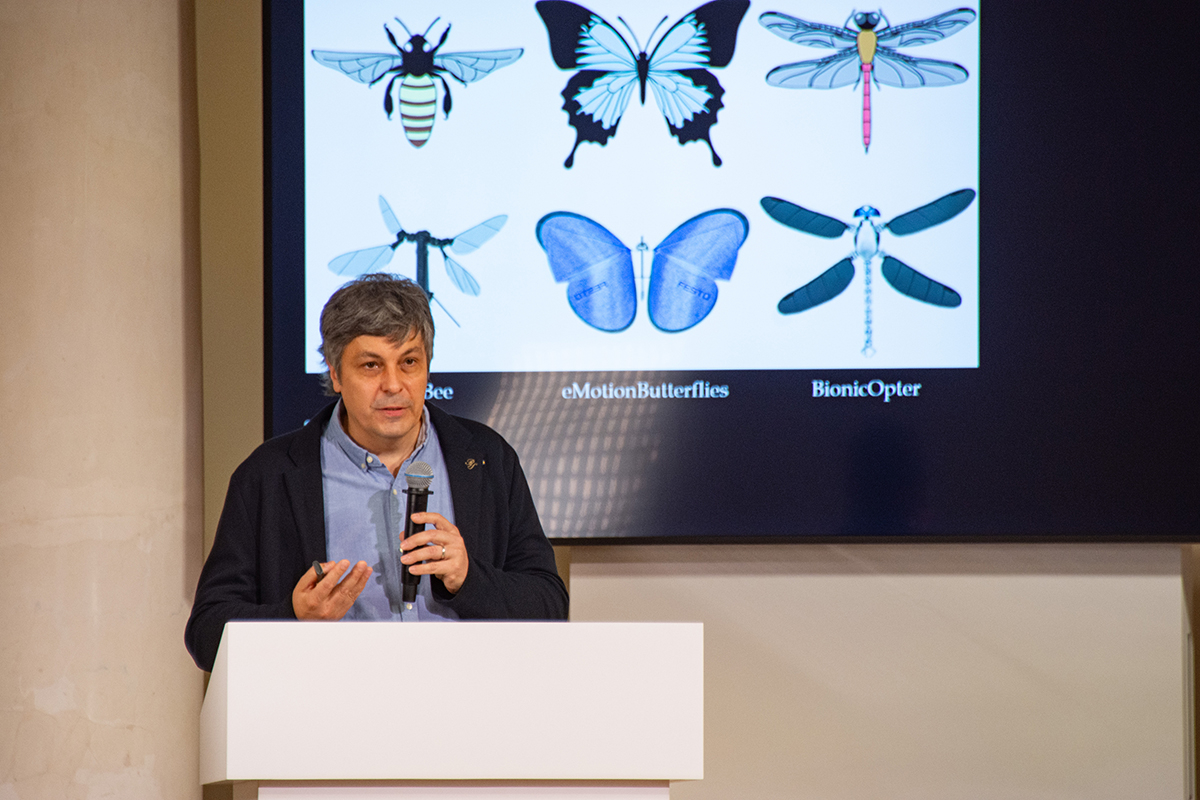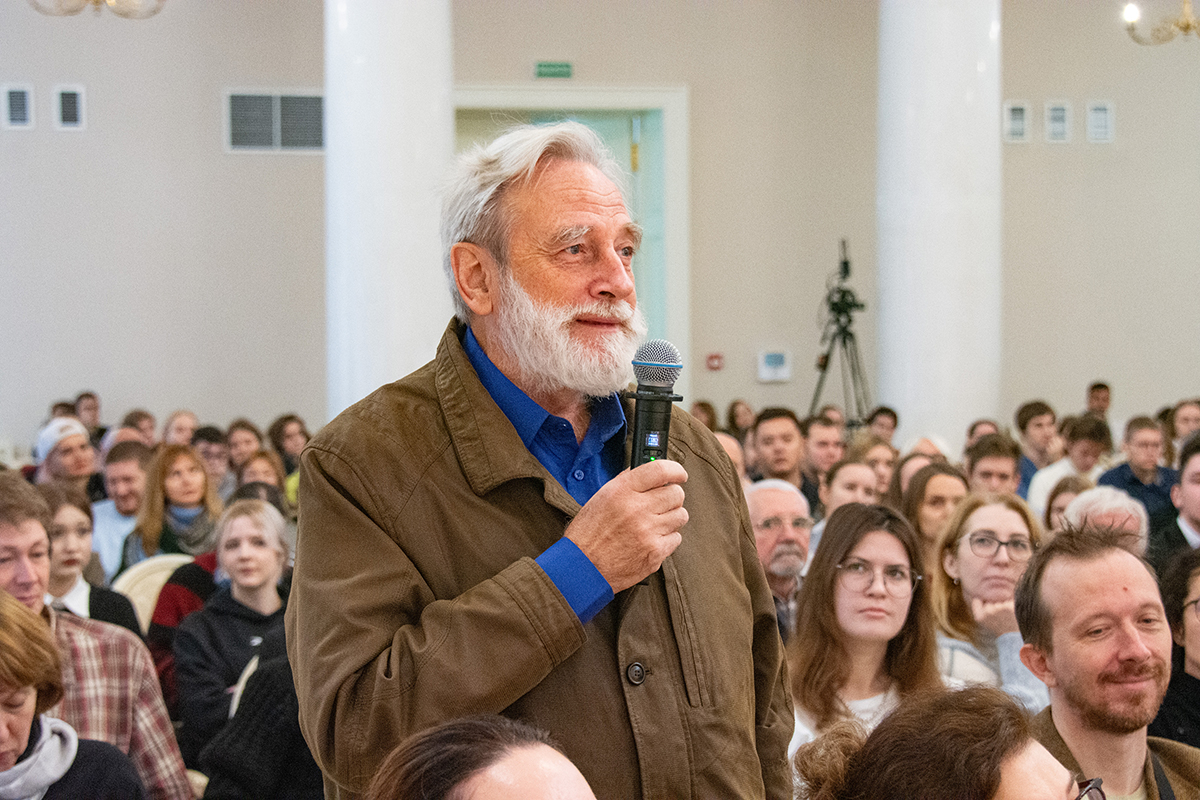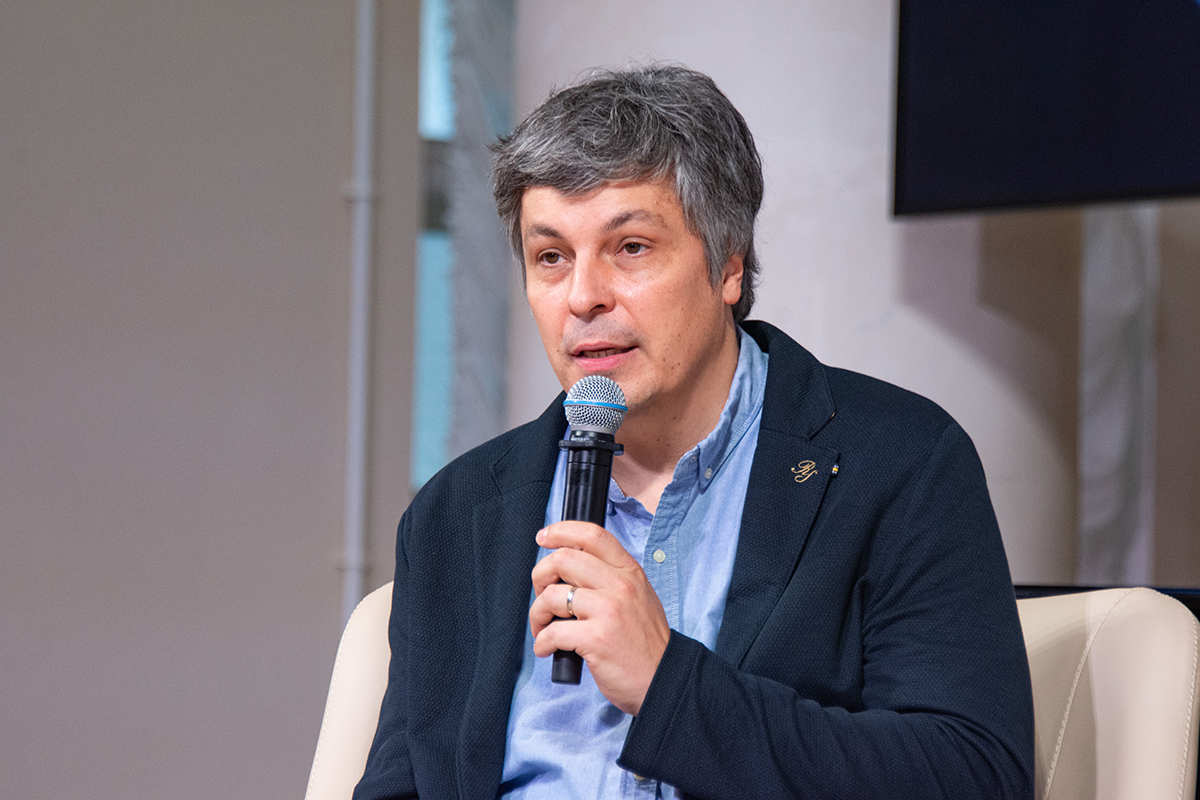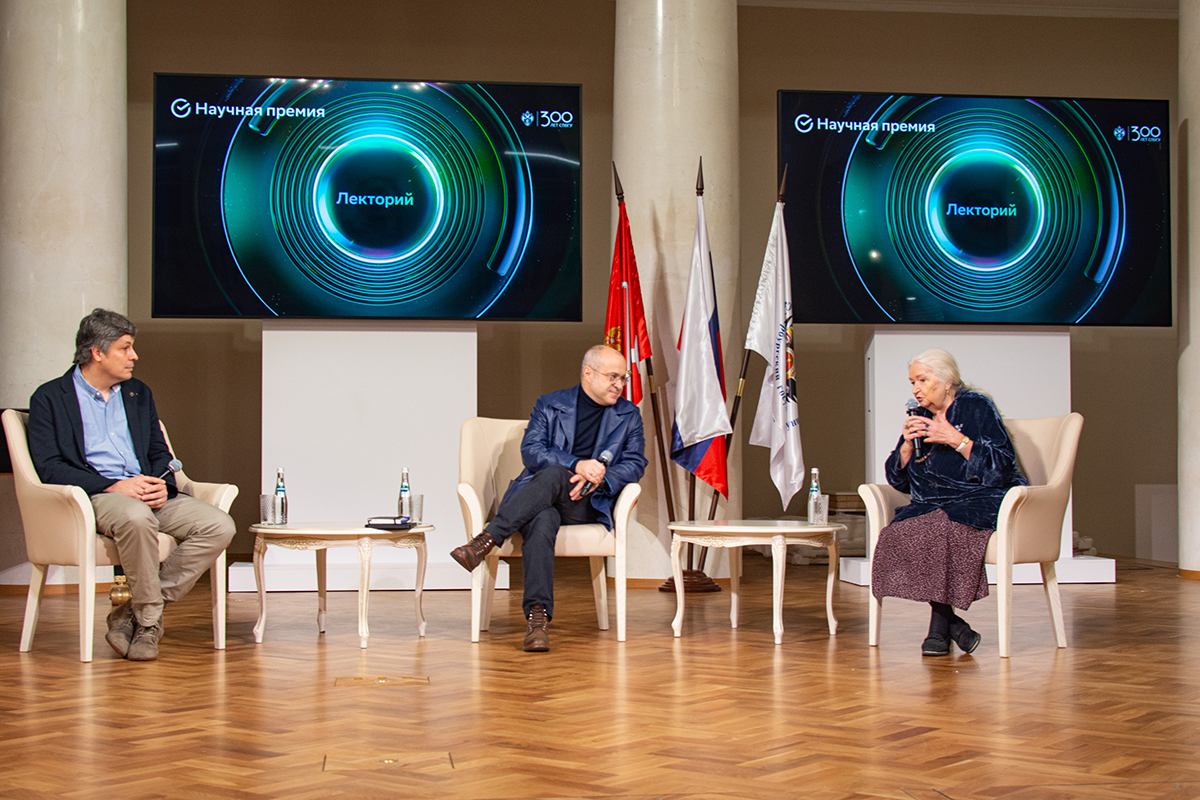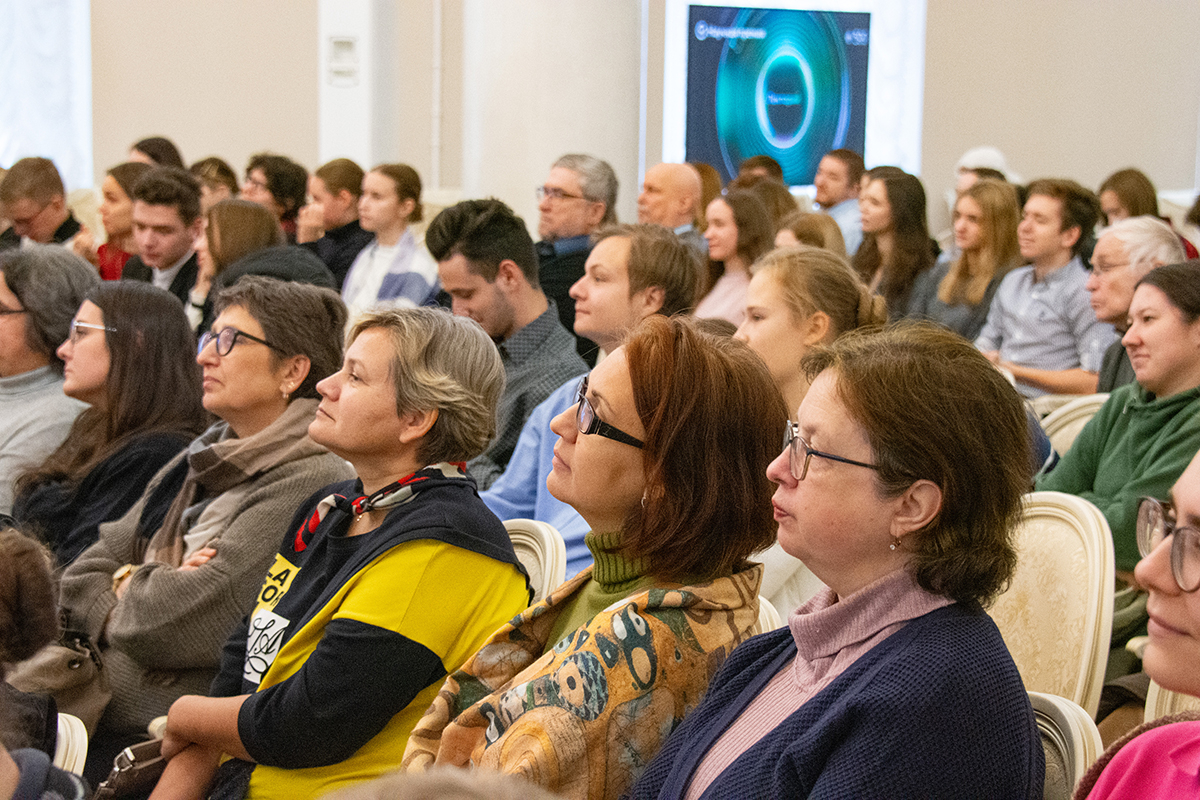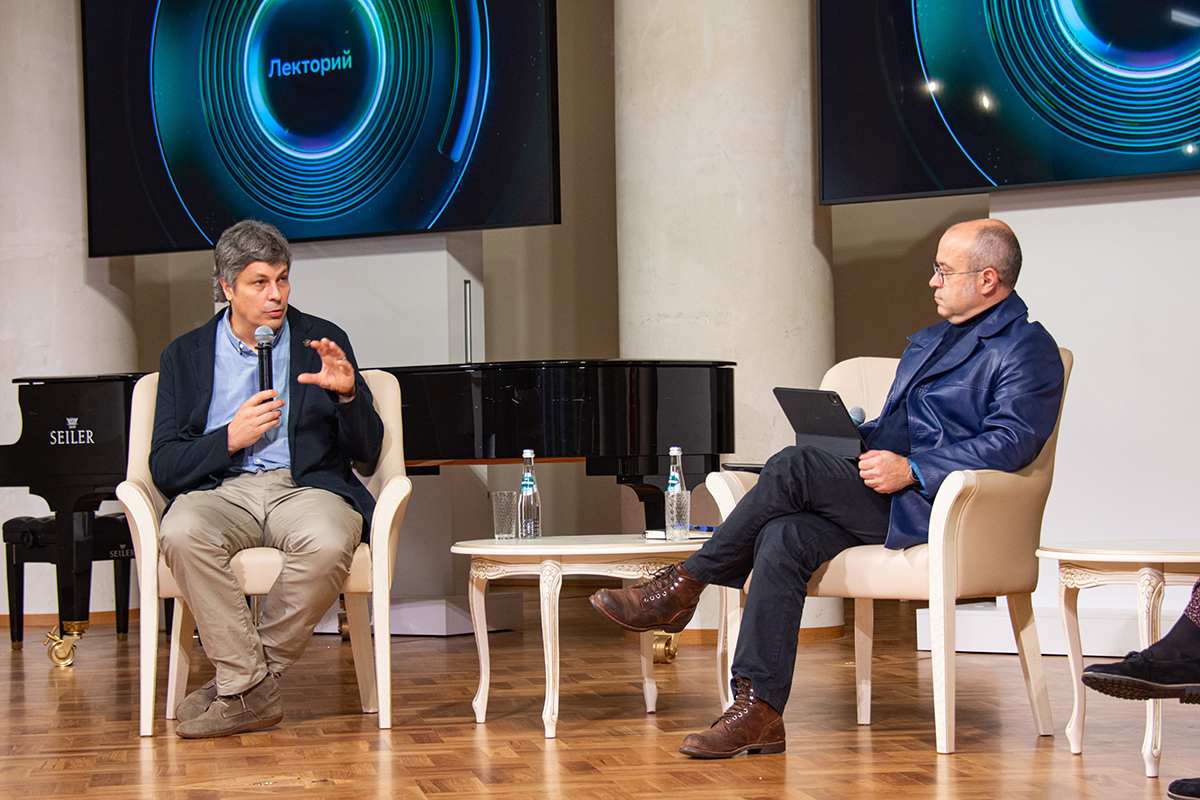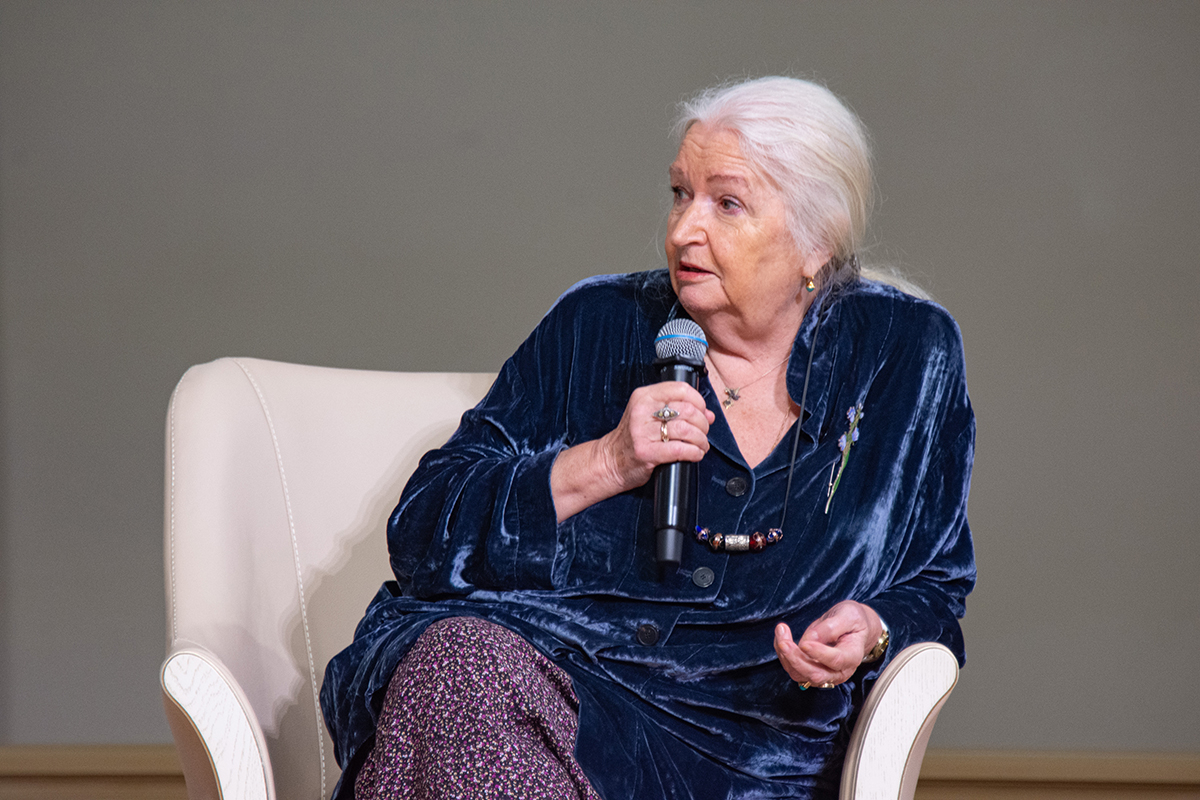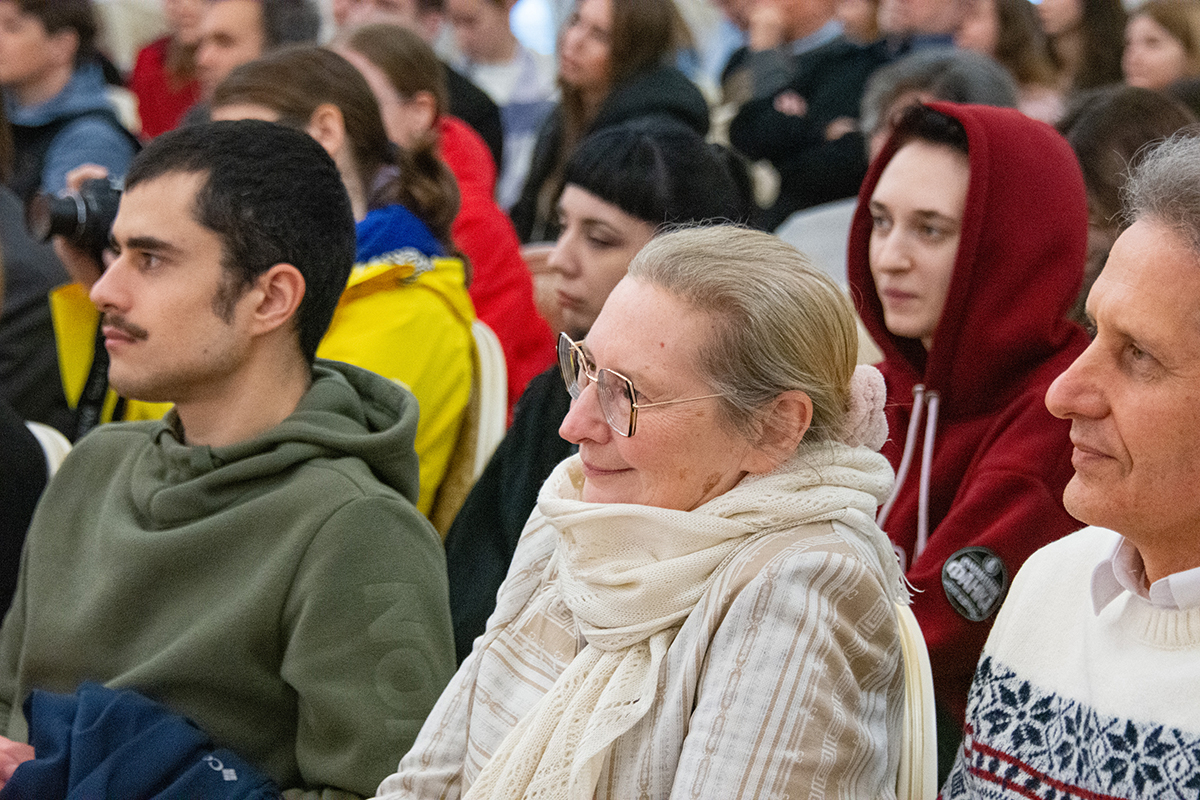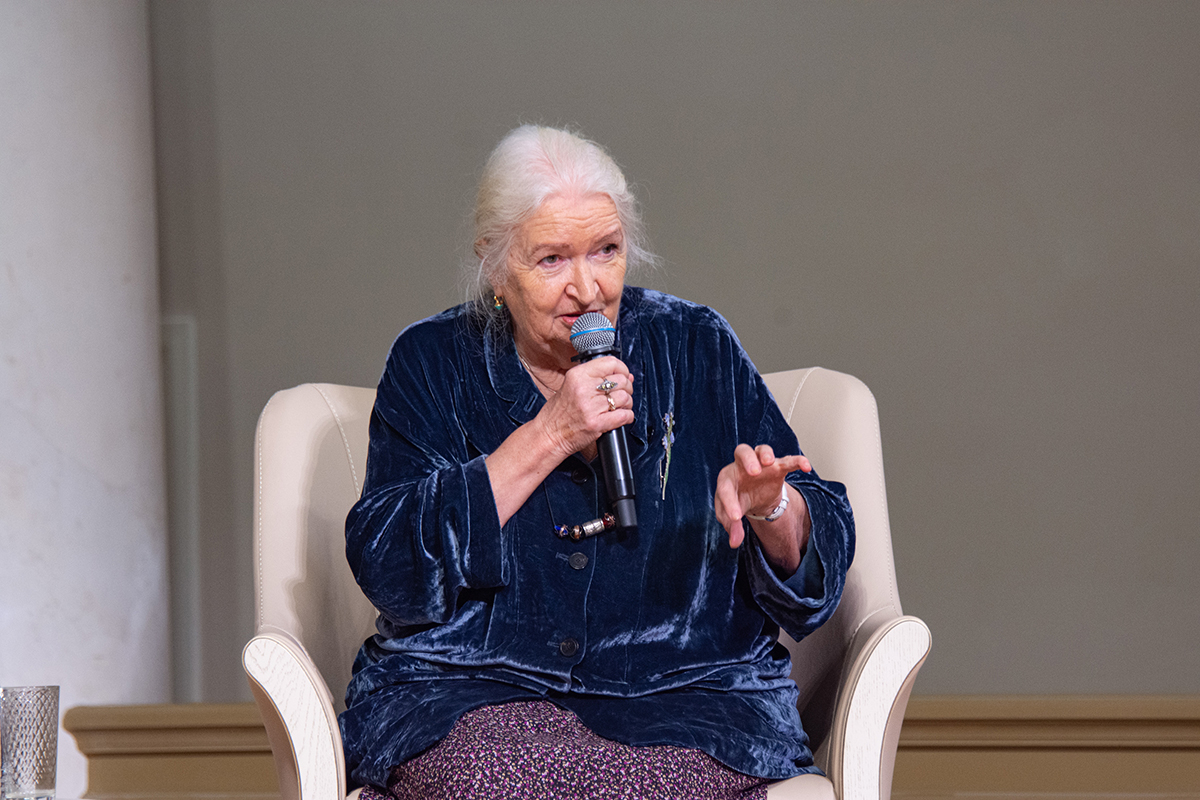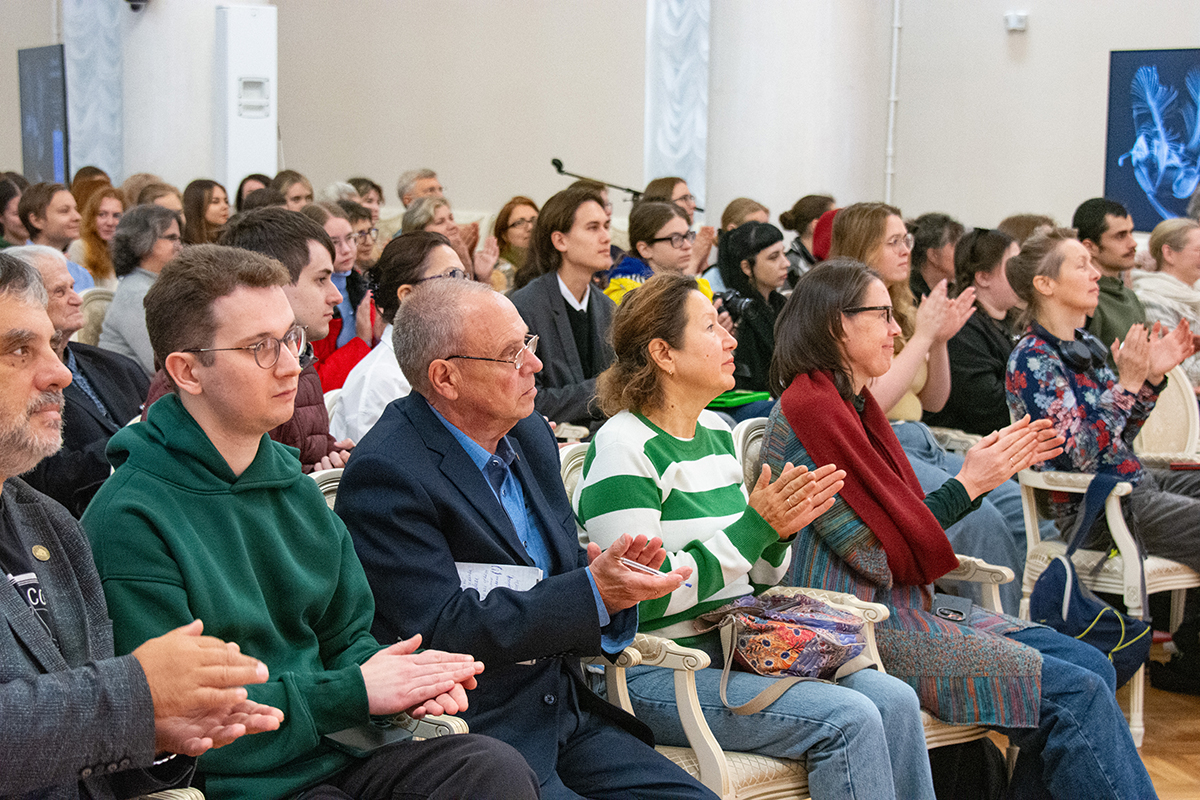St Petersburg University — Sber cooperation in science: the University discusses the prospects for studying the smallest insects
St Petersburg University has presented an open lecture by the 2023 Sber Science Award laureate Alexey Polilov, Corresponding Member of the Russian Academy of Sciences, Head of the Department of Entomology at the Faculty of Biology at Lomonosov Moscow State University. The scientist spoke about the results of entomological studies of micro insects as new model objects for large-scale scientific research. The lecture also included a discussion with Tatiana Chernigovskaya, Director of the Institute for Cognitive Studies at St Petersburg University, Member of the Russian Academy of Education.
In 2024, St Petersburg University celebrates its 300th anniversary. Research projects and initiatives in education have always played a central role in the life of the University, contributing to preparing high-quality specialists and promoting advanced knowledge, said Anastasia Yarmosh, Senior Vice-Rector for Strategic Development and Partnership at St Petersburg University. She particularly focused on encouraging the interdisciplinary approach and cooperation with various educational organisations, research centres and technology companies for the development of Russia’s science.
For experienced specialists and for representatives of other scientific fields, such events are a source of inspiration and influence their way of thinking and their future professional life. Today’s lecture at St Petersburg University is a special gift from Sberbank in honour of the 300th anniversary of St Petersburg University, and we are grateful to our partners for this opportunity.
Anastasia Yarmosh, Senior Vice-Rector for Strategic Development and Partnership at St Petersburg University
St Petersburg University is the first university in Russia to actively include employers in the process of developing academic programmes, said Anastasia Yarmosh.
Last year, in cooperation with Sber, the University opened the master’s programme "Artificial Intelligence and Data Science". It aims to prepare competent specialists in the field of advanced technologies. As part of the St Petersburg International Economic Forum, St Petersburg University and Sberbank also signed an agreement on preparing lawyers in the legal aspects of processing and protecting information and personal data. Sber as an industrial partner takes an active part in developing academic programmes at St Petersburg University and topics for students’ internships and graduation projects. It also offers internships with access to real-world projects and ongoing research.
Being a leading technology company in Russia, Sberbank actively participates in supporting scientific initiatives together with higher education institutions such as St Petersburg University, creates conditions for the implementation of new promising projects and strengthens Russia’s status as a scientific country, said Albert Efimov, Vice President and Director of the Research and Innovation Department at Sberbank. The technology company offers such events for the first time, and, according to Albert Efimov, cooperation with the University provides unique opportunities for exchanging experience in the modern scientific world.

"We must understand that today’s science is the technology of tomorrow. They are quite far behind in time. That is why we came up with the idea to support science. The company employs hundreds of scientists both in divisions and in our centres, which were organised jointly with universities. Sber has the Sber Science Award, which aims to achieve several tasks, and one of them is the free exchange of knowledge and stimulation of interest in science," Albert Efimov said, adding that Russia’s future opportunities and victories will be due to scientific and technological progress and introducing scientific discoveries in real life.
The Sber Science Award is an annual personal award of 20 million roubles for Russian and international scientists who have made a significant contribution to the development of science and continue active research activities in Russia. The award is set to stimulate further achievements necessary for the technological and economic growth of the country and to support outstanding specialists in various fields who use artificial intelligence mechanisms in research. The award has the following nominations: Life Science, Digital Universe, and Physical World.
Until recently, little has been known about the smallest insects. Today, they are becoming important model objects for solving fundamental and applied scientific problems. Alexey Polilov, Head of the Department of Entomology at the Faculty of Biology at Lomonosov Moscow State University, presented the main results of studying the principles and limits of miniaturisation of the nervous system, the influence of body size on basic cognitive abilities, and the discovery of the phenomenon of anucleate neurons.
We tried to take a comprehensive approach to the study of the smallest insects. We analysed their structure, nervous system, brain, and behavioural reactions. The smallest flying insects, similar in size to single-celled organisms, include parasitic wasps of the genus Megaphragma. It turned out that in the nervous system of adult insects, 95% of neurons have neither cell bodies nor nuclei. Such a structure of the nervous system has been discovered for the first time.
Alexey Polilov, Head of the Department of Entomology at the Faculty of Biology at Lomonosov Moscow State University
In some micro insects, the relative brain size expressed as a percentage of body mass is 20%, which is several times higher than in many much larger animals. Such results raise the question of what functions such a compact brain, containing a relatively small number of neurons, can perform and whether it is capable of anything more than simple reflexes. According to the entomologist, despite their size, micro insects demonstrate complex behavioural reactions: they move in space, find food sources and interact with each other, showing signs of social behaviour, and this, therefore, indicates the presence of fairly complex cognitive mechanisms.
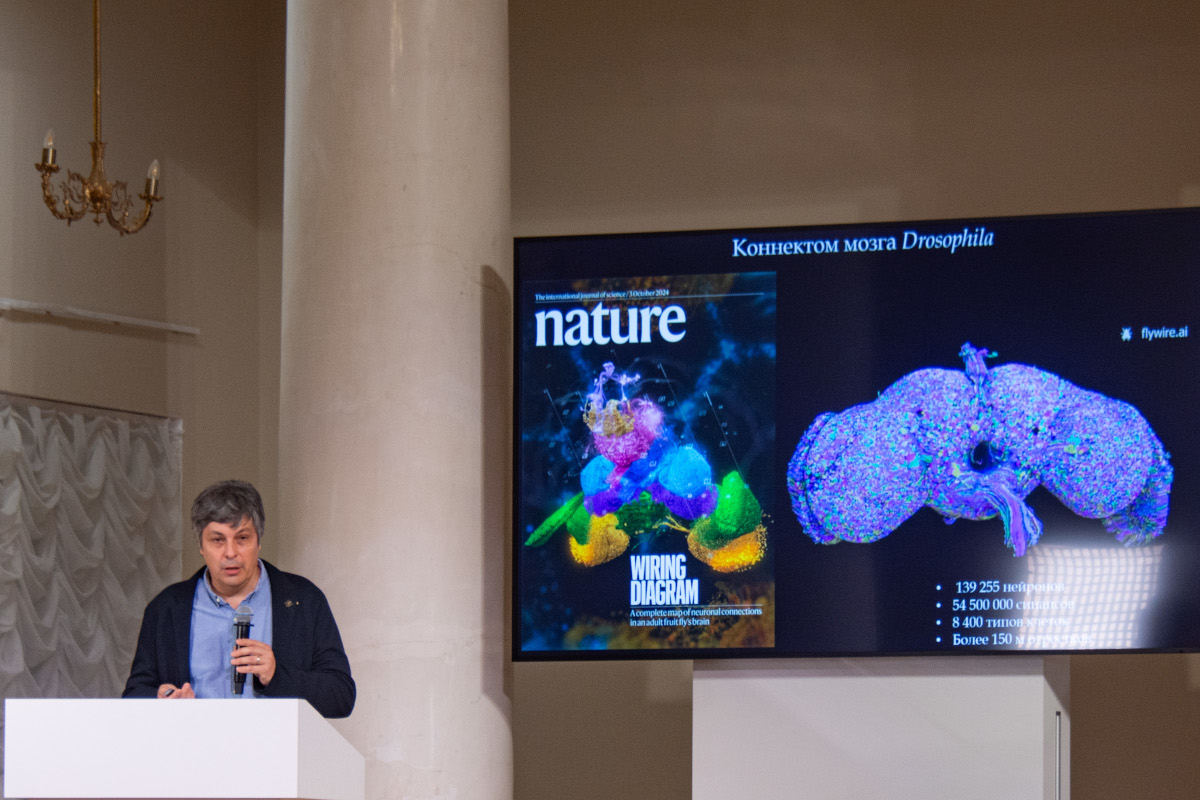
Experimental studies have found that objects of minimal size, regardless of species, often learn faster than larger organisms, such as mice. This supports the hypothesis that small life forms may be an evolutionary advantage that ensures optimised information processing and decision-making. The speed of neural signals in a miniature brain may be higher, facilitating rapid responses to environmental changes.
The study of the cognitive abilities of the smallest insects has given a new impetus to the development of scientific thought. Among the key questions discussed by Tatiana Chernigovskaya, Director of the Institute for Cognitive Studies at St Petersburg University, Acting Head of the Department of the Problems of Convergence in Natural Sciences and Humanities, were the following: influence of the results of the study of micro insects on the analysis of the human brain; existence of various evolutionary paths leading to similar processes of obtaining information; and strategies for the development of living organisms.
Evolution does not dictate that we must follow only one path of development. Evolution means that the same functions can be performed in different ways. The basic principles of evolution imply that even a limited number of neurons, as in tiny insects, ensures complex cognitive processes.
Tatiana Chernigovskaya, Director of the Institute for Cognitive Studies at St Petersburg University, Acting Head of the Department of the Problems of Convergence in Natural Sciences and Humanities
"We know that the complexity of the human brain is comparable to the complexity of the entire Universe. However, there are alternative mechanisms, i.e. other ways of coding and memorising information. They need to be studied," said Tatiana Chernigovskaya.
The study of micro insects is important for understanding the fundamental principles of brain functioning and for developing new technologies in the field of robotics and artificial intelligence. Further scientific work, according to Tatiana Chernigovskaya, a neurolinguist, should focus on a detailed analysis of the brain architecture of micro insects, studying the mechanisms of information processing and developing new methods for modelling their behaviour.


